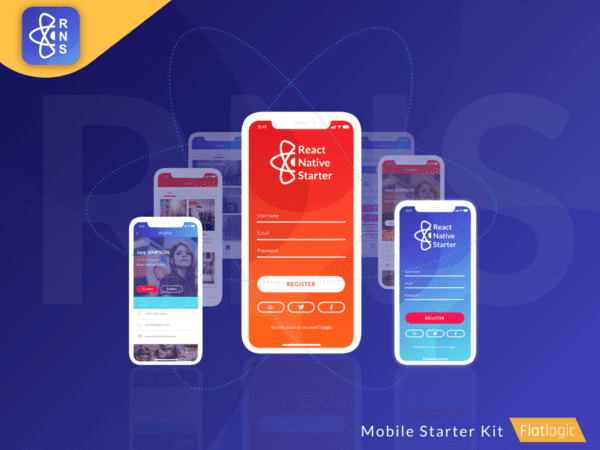Table of content:
- Introduction
- Basic tips for building a mobile app faster
- Wrapping up
- Suggested Articles
Introduction
Building a mobile app from scratch is definitely a time-consuming task. We tend to expect a lot from an application: fast load, satisfaction during an interaction, and ease of use. Well, there is no doubt that the mobile era is here. According to The Communications Market Report, the number of mobile users is even greater than the number of desktop users. And these statistics are showing us that without an app, you may be losing a truly big and important segment of the market. The segment that just prefers to do business that way.

1. Do not reinvent the wheel
Seriously. It is a fact that there were hundreds of people who had the same problems. If you are not an expert in creating mobile apps then app template created by industry experts will reduce your developing time anyway. Mobile app template is a starter project that bootstraps coding process. It can kick-start the app development with just a few lines of code. Especially when it comes to the templates that are made according to the latest UX and UI trends. Nowadays, the difference between apps is just the quality of its user experience (UX).
2. Build a prototype as fast as you can
Time is money. Development, design, business analysis, and testing that is just one of the main steps of the huge process of creating an application. And in the end, you can have an awful situation when customers just don’t want your app. Sometimes it happens. I think you should be prepared for this kind of situation. That is why you may need to get to the market fast with a prototype. Don’t waste your time and money waiting for a complete app with all the features. Build only with the essential proposition of the app and you will find out soon if the users are ready to buy. Once they do, you will get a lot of important feedback from your paying customers. You might need to make several apps to be successful to keep ahead of the competitors. If you buy one template for several apps, you’ll save lots of money.
3. Focus only on one key feature in your app
Finally creating your own app is great, but if you are thinking that this is the only app you will ever need, then you might be just expecting too much from it. Applications are most effective when they really focus on a specific aspect of a problem or a task and use only one or two key features. And the only way to know exactly which one is to get real customer feedback.

4. Collect feedback for future improvements
Stay alert and continuously improve your app. Know your audience, listen to your audience, and track the things that may be important to the final users. Responding to customer comments will high up trustworthiness to your product and engagement levels. Your mobile app will surely become better if you are eager to get any feedback from outside and take it into account.
5. Build the same app for iOS and Android
Is this even possible to get your prototype faster? Yes, there is a technology from Facebook called React Native. It is very popular nowadays, and thousands of apps are already using it. Big names like Facebook, Airbnb, Uber, and many other companies are building their latest apps using React Native.
As you might know, it has been gaining in popularity only for one reason: it allows developers to write the same code across different mobile operating systems, it can save you time and therefore money for development. This means that you no longer have to build two separate apps: one for iOS and another for Android.
We’ve created a React Native Starter kit that bootstraps the development of your mobile application and follows the latest industry best practices in React Native.
Wrapping up
The research has shown that the world mobile app market is expected to grow to $63 billion by 2020. That’s why building a mobile app is not a luxury, but a necessity for every modern business. Usually, mobile apps generate some additional revenues for a company in two main ways: first of all, because most people always carry a mobile device, applications encourage repeat orders from customers on the go. The main convenience and simplicity of the apps versus going to a web app or a website make it easier for people to buy. And secondly, a company can gain from a new advertising revenue stream through apps. Smartphones allow customers to read basic information, make a choice, and purchase without needing to talk to anyone or make any calls.
Comments